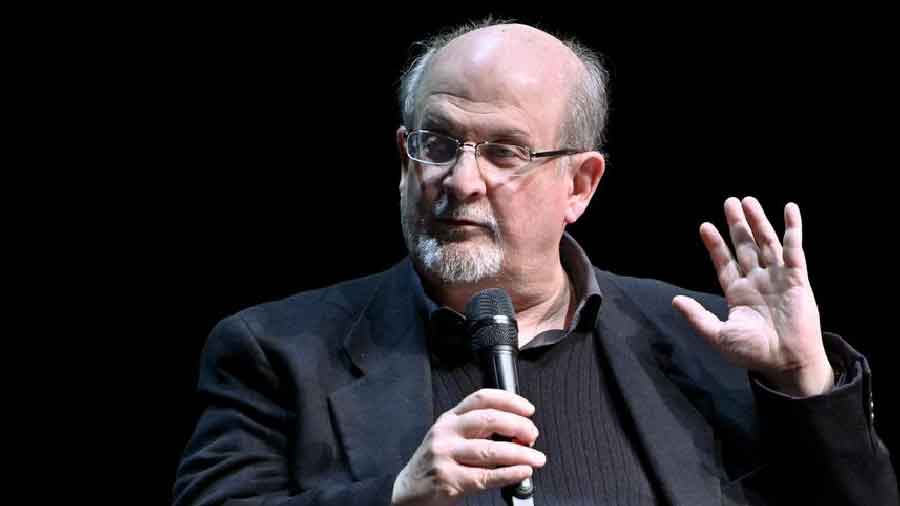Mumbai-born Booker Prize winning author Salman Rushdie is among the leading literary voices to speak out against a British publisher's “absurd censorship” after it rewrote certain sections of Roald Dahl's classic children's books because the language was deemed offensive.
Under a review of Dahl's classics, which include popular titles that were adapted to the screen such as ‘Charlie and the Chocolate Factory’ and ‘Matilda’, references to weight, mental health, violence, gender and race are to be rewritten or removed by so-called sensitivity readers to avoid causing offence.
While a character who is fat becomes enormous, references to small men have reportedly been changed to small people, according to a report in The Daily Telegraph.
The changes to these books were made by Puffin Books, a division of Penguin Random House.
The rights to the books are controlled by The Roald Dahl Story Company, which worked with Puffin to review the texts to ensure that “Dahl’s wonderful stories and characters continue to be enjoyed by all children today”.
Rushdie spoke out against this move against the famous 20th century British novelist.
Rushdie, 75, who lost vision in one eye from a brutal stabbing attack last year while on stage in New York, took to Twitter to label the move against a late novelist's works as “absurd censorship”.
“Roald Dahl was no angel but this is absurd censorship. Puffin Books and the Dahl estate should be ashamed,” he tweeted on Sunday.
The British-American novelist has for years lived under the shadow of a fatwa issued by Iran’s former supreme leader Ayatollah Khomeini, calling on Muslims to assassinate the author over the allegedly “blasphemous” novel ‘The Satanic Verses’.
In response to a follow-up comment on Twitter, Rushdie added: “He [Dahl] was a self confessed antisemite, with pronounced racist leanings, and he joined in the attack on me back in 1989… but thanks for telling me off for defending his work from the bowdlerising Sensitivity Police.” British Prime Minister Rishi Sunak also waded into the controversy, with his official spokesperson quoting one of Dahl’s famous works to say: “When it comes to our rich and varied literary heritage, the Prime Minister agrees with 'The BFG’ that we shouldn't gobblefunk around with words." "Amidst fierce battles against book bans and strictures on what can be taught and read, selective editing to make works of literature conform to particular sensibilities could represent a dangerous new weapon,” tweeted Suzanne Nossel, CEO of PEN America, a community of thousands of writers advocating freedom of expression.
"Those who might cheer specific edits to Dahl's work should consider how the power to rewrite books might be used in the hands of those who do not share their values and sensibilities," she said.
English writer Philip Pullman, behind the ‘His Dark Materials’ fantasy trilogy, said books should be allowed to fade away rather than be rewritten.
“Let him go out of print,” said Pullman.
The Roald Dahl Story Company said any edits are "small and carefully considered", working with publishers Puffin and Inclusive Minds, a collective working towards inclusion and accessibility within children's literature.
"We want to ensure that Roald Dahl's wonderful stories and characters continue to be enjoyed by all children today,” said a spokesperson for the Roald Dahl Story Company.
"When publishing new print runs of books written years ago, it's not unusual to review the language used alongside updating other details including a book's cover and page layout. Our guiding principle throughout has been to maintain the storylines, characters, and the irreverence and sharp-edged spirit of the original text," the spokesperson added.
Dahl, who died aged 74 in 1990, was controversial for some of his views.
In 2020, the Dahl family and the Roald Dahl Story Company issued a statement to “deeply apologise for the lasting and understandable hurt caused by Roald Dahl's anti-semitic statements".
“Those prejudiced remarks are incomprehensible to us and stand in marked contrast to the man we knew and to the values at the heart of Roald Dahl's stories, which have positively impacted young people for generations. We hope that, just as he did at his best, at his absolute worst, Roald Dahl can help remind us of the lasting impact of words,” the statement added.
Except for the headline, this story has not been edited by The Telegraph Online staff and has been published from a syndicated feed.

